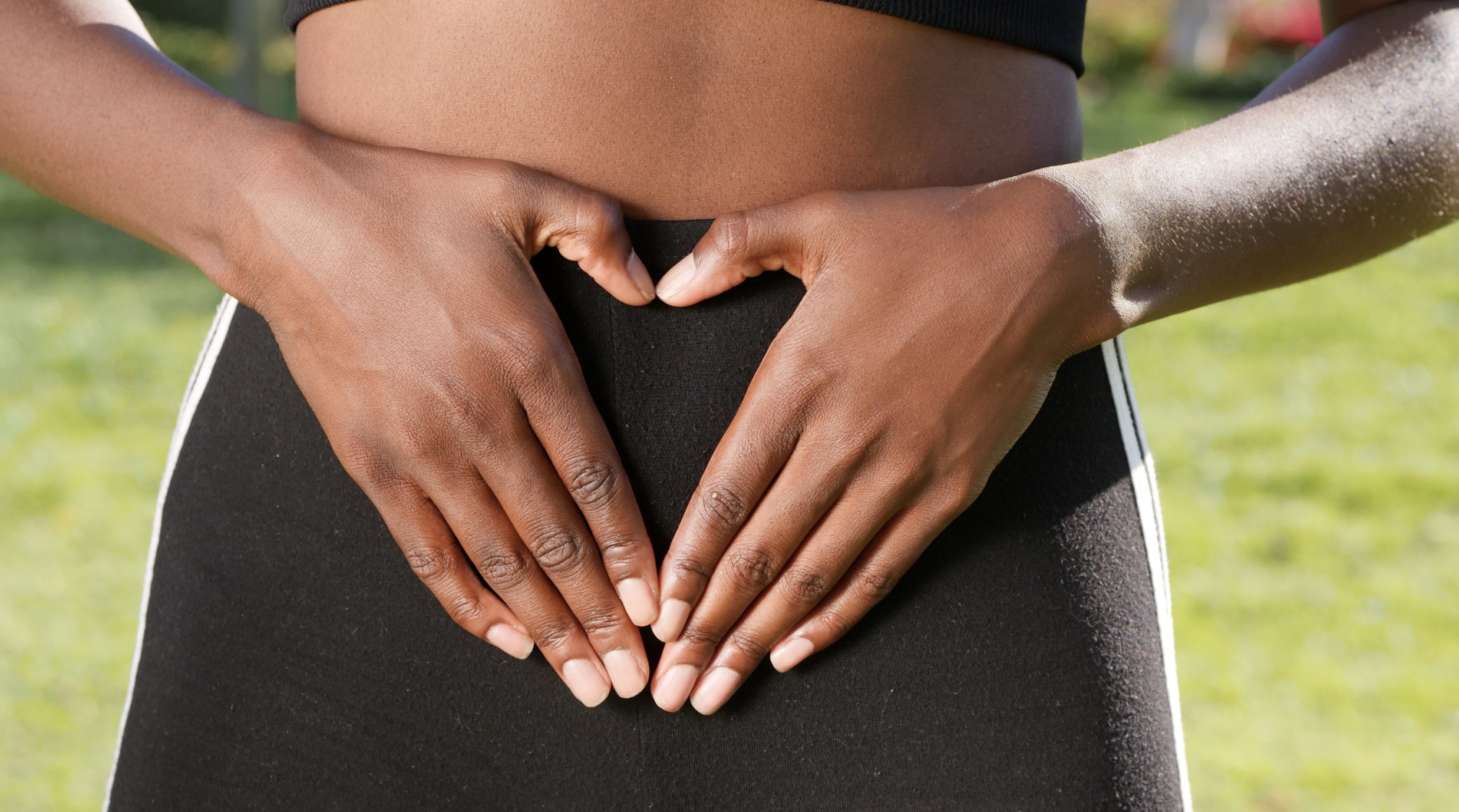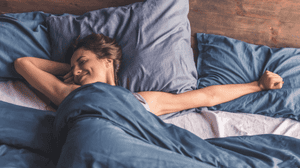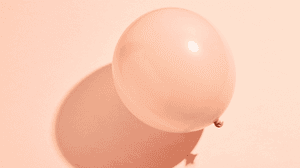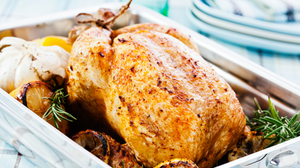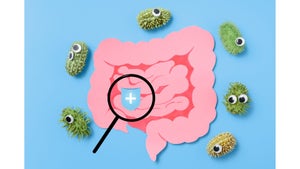According to research, irritable bowel syndrome (IBS), could be as much as twice as common in women than it is in men[i]. This number differs from country to country, with the greatest disparity between male and female sufferers found in Western communities[ii], but what’s clear is that, worldwide, more women are reporting symptoms than men.
With no cure and no clear cause, IBS is a tricky condition for doctors to diagnose and treat. Which means that millions of women are tolerating symptoms that make living their daily lives difficult with no hope of a solution. So what can be done? Why are women more likely to experience IBS? And how can we make living with IBS easier?
What is IBS and How Do Women Experience It?
Around one in five adults in the UK are affected by IBS[iii]. Most people who have the condition will start experiencing issues in their twenties or thirties[iv].
What are the symptoms of an IBS flare up?
IBS varies from person to person, however there are core symptoms that most people will see, including diarrhoea, constipation, stomach cramps and bloating. Some will experience other symptoms too, including flatulence and nausea. Others will also have seemingly unrelated symptoms such as headaches, heartburn and backache.
How is IBS diagnosed?
Whether their patient is male or female, a GP will ask the same questions during a consultation. Since there’s no test for IBS, it’s diagnosed based on personal experiences, with the doctor looking for symptoms to have occurred at least three times a month for three months or longer. Some GPs might suggest you complete a food diary for a period of time and most will order tests to rule out other diseases and conditions such as coeliac disease.
How does IBS differ between men and women?
Though men and women will experience broadly similar IBS symptoms, research suggests that there is a slight variation between how, when and how often they present. For example, women are more likely to experience constipation-type IBS (IBS-C), with 40% of women reporting constipation compared to 21% of men[v]. This compares to 50% of men who experience diarrhoea (IBS-D), compared to 31% of women. The same studies tell us that women are also more likely to report bloating and abdominal discomfort.
Why Do So Many More Women Experience IBS?
Depending on location, up to two times as many women are diagnosed with IBS compared to men[vi]. There has to be a physiological explanation for this, right? Well…not really. Scientists are as baffled as those of us dealing with IBS but they do have some theories…
Do more women have IBS or are we just better at going to the doctor?
Ever heard of Occam’s Razor? It tells us that the most obvious theory is usually the right one. Most men simply do not go to the doctor, especially when the problem is (whisper it) their bowels. NHS data from 2019/2020 shows that while with age the disparity evens out, at the time when IBS symptoms are most likely to start creeping many fewer men are attending health appointments than their female counterparts[vii]. Which raises the question, is IBS a female problem or are we just better at seeking help?
Is IBS linked to the menstrual cycle?
If you’re a person who menstruates you’ve probably experienced bowel symptoms as part of your monthly woes. It’s common to endure bloating, as well as diarrhoea and/or constipation in the week or so leading up to your period and those with diagnosed IBS often report a worsening of symptoms during this time.
Research suggests that our gut microbiota interacts with sex hormones, including oestrogen[viii] which, paired with anecdotal evidence from women with IBS, supports the idea that IBS may be linked to the menstrual cycle. This is backed by research that shows women experience worsening IBS symptoms, resulting in a lower quality of life, during their period[ix].
Is IBS linked to endometriosis, PCOS and other gynaecological conditions?
According to experts, around 50% of women with gynaecological complaints also present with IBS[x]. Does this mean that IBS has a link to issues in the female reproductive system? It certainly looks that way. In fact, 42% of women with PCOS also have IBS[xi] while those with endometriosis are slightly more likely to develop IBS too[xii]. Chronic pelvic pain is also extremely closely linked to IBS with 50% of women with CPP also reporting IBS-type symptoms[xiii].
What Can Women Do to Help Reduce IBS Symptoms?
It’s all well and good understanding that IBS seems to be a largely female problem. But in the absence of a cure what can we do to reduce the pain of this unpleasant, uncomfortable and often ego-destroying condition?
Recognising IBS triggers
Be Prepared should be the motto of people who menstruate. It’s not only good advice for that time of the month, it’s something for IBS sufferers to live by too.
Get to know your IBS triggers: dairy, bread, stress, hot weather, alcohol or exercise…it’s essential to learn what kicks off those dodgy bowels. Keeping a daily diary, tedious as it sounds, is the best way to do this with food diary apps available to simplify the task.
Know your IBS cycle: just as you know what foods might trigger an IBS flare up it’s worth keeping an eye on timings. That daily diary may help you to learn that different symptoms occur in tandem with different moments in your cycle.
Be flare up ready: no matter how familiar you are with your IBS triggers, chances are it’s sometimes going to get you when you least expect it. Be ready by carrying GP-recommended medicines, like anti-diarrhoeals or anti-spasmodics, along with extra loo paper and soothing wipes with you. Check toilet facilities ahead of days out and, if symptoms tend to be particularly sudden, be aware that IBS entitles you to use accessible bathrooms. Purchasing a RADAR key provides access to scheme-compliant loos throughout England and Wales.
The best diet for IBS
Male or female, improving your diet is usually the best way to exercise better control over IBS. Eating fresh, simple, homemade foods is a must while avoiding common trigger foods such as dairy, gluten and greasy fried foods, among others. Fizzy drinks, caffeine and alcohol are all IBS triggers too, as are sweeteners including sorbitol and mannitol.
Many people with IBS are tempted by the idea of the low FODMAP diet, cutting out the carbohydrates often responsible for bloating and cramping. However, this highly restrictive diet should only be undertaken under the supervision of your GP or a qualified dietitian.
Supplements, gut health and IBS
Formulated especially for women, PrecisionBiotics’ Daily Women’s Flora contains scientifically studied LA-5® and ASTARTE™, a unique combination of 4 lactobacilli bacterial strains. It also contains biotin, which contributes to the maintenance of normal mucous membranes to support vaginal health.
Alternatively, the PrecisionBiotics Good Bacteria supplement is ideal for restoring gut balance when taking antibiotics, a common IBS trigger. It’s also a great everyday supplement for those whose gut health is less than perfect, offering 4 billion CFU of scientifically studied Bifidobacterium BB-12® and Lactobacillus LA-5® bacterial strains. This one-a-day supplement also contains fructooligosaccharides, necessary food for the gut’s good bacteria.
Sources
[i] https://www.sciencedirect.com/science/article/abs/pii/S0953620524001055
[ii] https://pmc.ncbi.nlm.nih.gov/articles/PMC6175559/
[iii] https://www.bupa.co.uk/health-information/digestive-gut-health/irritable-bowel-syndrome#:~:text=Around%201%20in%205%20adults,it%20harder%20to%20identify%20IBS.
[iv] https://www.bupa.co.uk/health-information/digestive-gut-health/irritable-bowel-syndrome#:~:text=Around%201%20in%205%20adults,it%20harder%20to%20identify%20IBS.
[v] https://pmc.ncbi.nlm.nih.gov/articles/PMC6175559/
[vi] https://pubmed.ncbi.nlm.nih.gov/27319981/
[vii] https://digital.nhs.uk/data-and-information/publications/statistical/hospital-outpatient-activity/2019-20/summary-report---gender
[viii] https://pmc.ncbi.nlm.nih.gov/articles/PMC7971312/
[ix] https://pmc.ncbi.nlm.nih.gov/articles/PMC7883586/#__ffn_sectitle
[x] https://pubmed.ncbi.nlm.nih.gov/2598751/#:~:text=Approximately%2050%25%20of%20women%20referred,that%20of%20controls%20(28%25).
[xi] https://link.springer.com/article/10.1007/s10620-009-0890-5
[xii] https://link.springer.com/article/10.1007/s00384-015-2218-6
[xiii] https://gut.bmj.com/content/30/7/996.info
